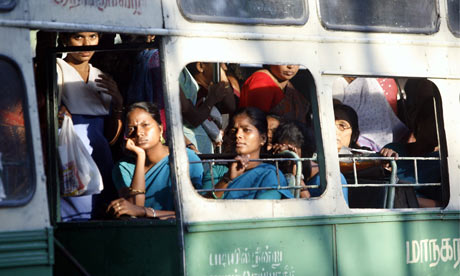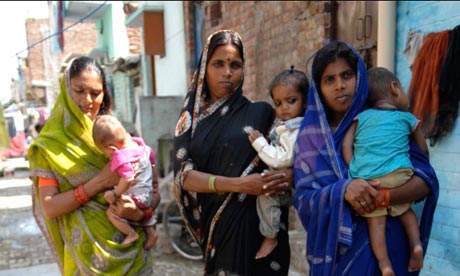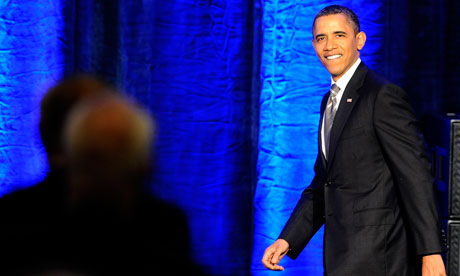Avoiding terms of address
British speakers of English try to avoid addressing each other by any sort of title. While speakers of French politely address strangers as "monsieur" or "madame", the British are tongue-tied at the point of interaction, hoping that simple proximity will indicate to whom they are talking. These days, it's considered condescending to use "sir" or "madam", unless the speaker is in a clearly-defined "service" role. To fill this gap, the locals have developed various colloquial circumlocutions. In London, for example, "guv[nor]", "mate" and "squire" are employed by males (according to complex rules) to address unknown males, with "darling" or "love" (rather questionably) filling the gap for males speaking to females. Further north, "petal" is a possible variant on "love", while in western Scotland "pal" is used to address unknown males. In south Hampshire, the guv/pal equivalent is the linguistically intriguing "moosh". What the British never, ever do is follow the American tradition and address those driving taxis as "driver", those serving at table as "waiter" or those working the hotel switchboard as "operator". To our ears, this is the height of condescension, verging on rudeness, and will ensure that the cab stops on the wrong side of the road, drinks orders are unfilled and the call is misrouted. Y'all remember that now.
Nick Stevenson, London
Tea
As any self-respecting Brit will tell you, there is not a lot that a cup of tea can't fix. Rough day at work? Put the kettle on. Broken heart? Pour yourself a cuppa. Alien invasion? You'll be ready for an apocalypse as soon as you've had your brew. But it's not all so straightforward. Choosing how to take your tea is a deceptively complex task - it's almost a political statement. Black with lemon immediately identifies you as a frequenter of Sloane Square, daaaaahling. Lots of milk and more than three sugars? You must be a builder - we'll assume you want a fry up on the side. If you take your char(coal) with minimal milk and maximum brewtime, we'll know you were born and bred up north, pet. Even new-fangled inventions such as camomile, peppermint and dandelion tea have their place in society (among new age hippies). The British relationship with tea is so important that employers have traditionally allowed their staff tea breaks to enjoy some alone time with their beverage of choice. We even have a mealtime named after it. So you see, tea is more than a drink to us Brits - it's a way of life. Phew, I'm feeling rather emotional after that - now, where's my mug?
Sian Morgan, London
Garden types
Many Brits aspire to having a garden, and some are a delight to behold, with roses, lavender, a lovingly mowed lawn and a water feature. Others, especially front gardens, never realise their full potential and are used instead for car parking, or displaying the colourful array of containers in which domestic rubbish is required to be placed for collection. Gardens are usually enclosed by a fence, a wall or a hedge. The latter may be a source of conflict between neighbours, with disputes about its exact location, extent or height leading to acts of vandalism, physical attacks, court cases and occasional homicides. Some gardens are populated by gnomes. These small plastic figures assume a variety of poses, and may even be seen "fishing" - although not necessarily within reach of water. They, too, can lead to hostilities - gnomes have been knocked to the ground, mockingly re-sited, even stolen. Some Brits have allotments as well as, or instead of, gardens - these are detached plots, located elsewhere. Allotment-owners are a friendly but often competitive breed. A local allotment and garden Show is a good place to witness these characteristics - and also marvel at colossal cabbages. Britain's gardening "elite" have their gardens listed in a special yellow book and open them to the public.
Pat Richardson, Richmond, Surrey
Saying sorry
Visitors should be wary of the word sorry - it has endless nuances. For instance, if I inadvertently step on your toe we should both immediately say sorry. I'm sorry for having stepped on your toe - you say sorry to imply it was your fault really, or at least no one is quite sure, so both should say sorry. It also means no hard feelings. But when I say "sorry to bother you, but…" I'm not really apologising, just prefacing a request for some trivial favour, or bit of information. Such as: "Sorry to bother you, but do you have the time?" However, if you hear "sorry?" as a question you're most likely being asked to repeat something not quite heard or understood. But don't get carried away with your new knowledge. If someone pronounces sorry a "so-ree" with a strong emphasis on both syllables then that is bad news. They are not sorry at all, just being sarcastic. Maybe someone has mildly offended them - perhaps by accusing them of the unforgivable sin of queue-jumping. Their "so-ree"then means "shut it mate". But occasionally, very occasionally, sorry really does mean sorry. If someone says: "I'm so sorry to hear your mother has died" they probably are sorry. Not always, but probably.
Mike Pollak, Birmingham
White van man
The 21st Century incarnation of the "man on the Clapham omnibus", who has an opinion on everything and will kindly share it with you whether you wish to hear it or not. In previous generations he took the guise of Essex man - hard working, hard drinking, Sun reading, football supporting but to his eternal credit it was all about wife Shaz and two little cherubs, Chelsea and Dwayne. The steady stream of white vans that will accompany the participants and delegates along the Olympic Route Network - seemingly not owned by any company or corporation - are filled with the men described above. And yes they are men. For no woman could easily slip into this world of well thumbed Nuts magazines strewn across the top of the dashboard beside crushed polystyrene cups that once contained tea of an unrivalled colour and strength. Ironically these are the very men without whom the Olympic Park would still be just a pipe dream, a drawing on an architect's board. Visitors to our great land will take some convincing but these people are the unsung heroes, the thing which keeps Britain great. Cash is the preferred method of payment and their "building" skills are dubious. But we are a better place for having them.
Brian Hopcroft, Harlow, Essex
The sporting 'if only'
In every major sporting tournament, the British are always optimistically hopeful that this year our lad will win. Commentators and pundits come up with all kinds of reasons to show why this year will be different from last and we enthusiastically lap it up in the hope that maybe, just maybe, they might be right. We love to support the underdog which, coincidentally, is usually our own player. The more our man wins, the more we begin to speculate that he is going to win the Big One yet his final defeat in the final rounds doesn't so much surprise us, as resign us to the thing we are now so used to. Any win from decades past is held as a golden age when sportsmen were honourable and footballers didn't fall over. Every match has an if only moment: "If only he hadn't missed that shot", or "if only he'd been a stronger player" which helps justify why our sportsman lost and encourages us to remember that next year, just next year, he might win. And the next year the pundits remind us of last year's "if only" moment and we're off again, supporting a man who will probably never quite make it. Still, as long as we beat the French.
Rebecca Stevens, Cambridge
The War
The War - always meaning World War II - is as alive in the collective British consciousness as if it only ended five years ago. A melange of manic cheerfulness, stiff upper lips, atrocious food, doodlebugs, and muddling through. Equally evocative are the sounds of the time - big band dance numbers, and the warbling note of the air raid siren - and ladies' fashions - severe, economically cut, but with a certain dour style, and neat, off-the-shoulder hairdos, topped (in my mother's case) with a jaunty WAAF forage cap. It is an awful example of how propaganda can take hold and become history. History is laid down by the survivors - the images we all remember so well were composed with a good deal of thought by the powers that be - the Ministry of Information and the BBC - with a definite end in mind; to endure, to tough it out, to hang on until things got better. Something very similar was attempted during the Cold War, but met with far less success - the Cold War was nasty but theoretical, whereas WWII was nasty but actually happened. As a Baby Boomer, I just remember the post-war atmosphere - grey, tatty, somewhat regimented. We ate baked cod, mashed potatoes and boiled carrots off plates that did not match.
Luce Gilmore, Cambridge
The love-hate relationship
The art of the love/hate relationship has been taken to new heights/depths by the great British public. France, Germany, modern architecture, Americans, tradition - all have come in for a drubbing at the hands of the British populace while we simultaneously sup French wine, munch German sausage, defend London's skyline to anyone who dare deny its beauty, buy and do all things American and cling to traditions with no discernible purpose in the modern era. Even the London 2012 Olympic Games has acquired its fair share of naysayers and doom-mongers. Yes, the British are a people with conflicted souls and we're not afraid to show it. We dislike everything until someone else professes to dislike it too; then we love it with all our national heart, defending it with some of the most irrational arguments and justifications ever heard. The international traveller to London this summer may find the love/hate relationship difficult to master, risking falling afoul of the "rules" by joining in with the discord only to have the tables turned on them as the hate turns to love in an instant and we start defending the very thing we previously disparaged. Couple the love/hate relationship with the famous British self-deprecation and you end up with the archetypal London taxi driver.
Chris Angel, Woking, Surrey
Greetings cards
Although the first mind-boggling experience for any foreigner visiting the UK is to wash your hands - why on earth two taps - it's the greeting cards that are a true mystery. It is considered very bad manners not to respond to even a minor favour with a "thank you" card, be it accepting your parcel from a postman while you're not at home, giving you a lift to the station or sending you a birthday card. It is sometimes argued that you should reply to a "thank you" card with a "thank you for the thank you card" card, although the choice of those on the market is still rather scant. Other significant cards that are enthusiastically used by - it has to be said - mainly English and sometimes British women, are "Get well soon!" and "So sorry you're leaving" (not necessarily in that order). Among men it is more popular to sign rather than to buy and send greeting cards. Men who do not have a woman to send cards do not bother even with birthday cards. The excessive use of the greeting cards as well as the popularity of eBay are two of the reasons why Royal Mail still exists. But that's a story for another 212 words.
Agnieszka Rokita, Long Buckby
Cricket
Despite being loved and played in England and those parts of the world which used to be pink on the map (Canada excepted), cricket is both the nation's summer game and a cause of bafflement for the rest of the world. Questions naturally arise about the game - how can a match last for five days and yet still end in a draw? Note that a "draw" is not to be confused with a "tie" which is a completely different kettle of fish. Then there is the small matter of cricket language. For example, the majority of the batting side sit inside a dressing room. The two that are actually out batting are said to be "in", until they are "out" when they return indoors. Fielding positions are a minefield of the obscure. Why is there a fielding position called "third man" when there are no first, second or fourth men? As for the rules of the game themselves, there are 42 laws of the game. Unfortunately each law has dozens of clauses. For example, there are 11 ways in which a batsman can be given out. Unfortunately only the most ardent quiz nut knows them all. As for googlies, silly mid-off, and lbw, I'm afraid 212 words is simply not enough.
Neil Hancox, Ware
The two-fingered salute
What some foreigners, especially Americans, don't know is that asking for two beers by raising two fingers - with the back of your hand to the person that you are facing - is considered a rude gesture. Legend has it that the gesture originated in the Hundred Years War that was fought between England and France in the 14th Century. One of the English military advantages was the longbow and skilled archers. As an interesting side note, all able-bodied men were required to practise archery on Sundays, and several sports including football were banned because they interfered with archery practice. The legend goes that when an archer was captured by the French, they would chop off the two fingers on his right hand that he used to draw the bow, thus rendering him useless as an archer. Therefore, brandishing those two fingers to the French became a gesture of defiance. These days, it's a general-use rude gesture similar to the one-fingered salute that's favoured in America, which is also used here. So when asking for your two pints of lager in the pub, if you feel the need to raise two fingers to illustrate your request, please make sure that you have the back of your hand facing yourself, not the barman.
Tamara Petroff, Maidenhead
Anoraks
In Great Britain an "anorak" is not just an item of clothing, but a person completely obsessed by a little-known subject. These people will go to conventions - and I have heard it said that the collective noun for anoraks is a "convention" or a "parliament" - on such subjects as aircraft, railway trains, politics, kites, golf and many other subjects. The term anorak originates from trainspotters, who can be seen at Britain's railway stations wearing rather dirty weatherproof jackets with a notebook and pen in hand. The more fanatical and fussy of these people are known as rivet counters and are admired by fellow anoraks. Anoraks often appear on the BBC Radio 4 Today programme. They talk endlessly about the minutiae of politics and even get rivet counters, the party leaders, on to the programme, for this the BBC employ anoraks to carry out the interviews. Some anoraks specialise - the aircraft anorak is a good case. They are either military or civil aircraft spotters. The military spotters have a reputation for getting arrested for spying. The civil spotters can often be seen on a bus going or coming away from Heathrow Airport discussing the various aircraft they have seen lately. Anoraks are harmless and visitors should not be scared of them.
Doug Jones, Harrow, Middlesex, UK.









